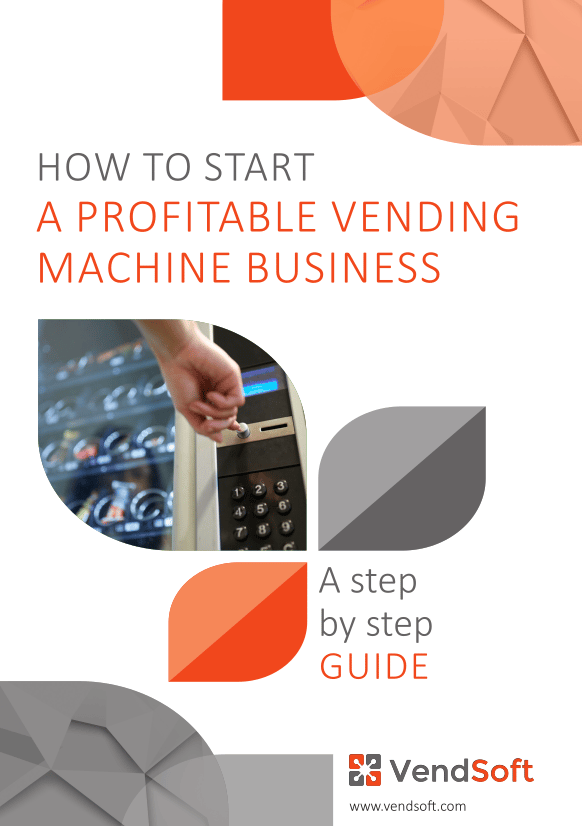Choosing the right legal structure for your vending machine business is a crucial decision that affects your taxes, liability, and growth potential. In this article, we explore how three real-world entrepreneurs—Emma, Raj, and Carla—navigated the choice between sole proprietorships, partnerships, LLCs, and corporations. Learn the pros and cons of each option, discover practical lessons from business owners at different stages, and see how tools like VendSoft can help you run your vending business smoothly, no matter which structure you choose.

Vending Machine Business Structures Explained: How Three Entrepreneurs Made the Right Choice
Building a Business, One Machine at a Time
Running a vending machine business isn’t just about stocking machines and collecting cash. It’s about building a real business—one that’s legally protected, tax-smart, and set up to grow.
Yet if you’re like many operators, you’ve probably wondered:
“How should I structure my vending business?”
Sole proprietorship? LLC? Corporation? Partnership? It’s not just legal jargon—it affects your taxes, your risk, and how confidently you operate every day.
Let’s look at how three different entrepreneurs navigated this choice, so you can see what might work for you.
Meet Emma: Just Getting Started
Emma has always dreamed of running her own business. Last year, she took the plunge and bought three vending machines to place in local office buildings.
At first, Emma felt overwhelmed by all the talk of LLCs and corporations. Lawyers and accountants seemed expensive, and she didn’t know if her small business justified the extra cost.
So she decided to start as a sole proprietor.
Here’s what that looked like for Emma:
- Simple setup: She registered a “Doing Business As” (DBA) name at her county office. No legal paperwork beyond that.
- Taxes: She files her vending income as part of her personal tax return. No separate business tax filing required.
- Costs: Minimal upfront costs. No annual filing fees or corporate paperwork.
- Liability: Here’s the catch. If someone were injured using her machine—or if she couldn’t pay debts—Emma’s personal assets could be at risk.
Emma loves how easy it is to run her business as a sole proprietor. But as she plans to add more machines next year, she’s wondering whether it’s time for extra legal protection.
Lesson from Emma: Sole proprietorships keep things simple, but your personal finances are exposed if something goes wrong. For small operations with low risk, it’s a good starting point—but be ready to reconsider as you grow.
Meet Raj: Growing with a Partner
Raj started in vending alongside his college friend, Alex. Together, they invested in twenty machines spread across gyms and apartment complexes. They share responsibilities, split profits, and work as a team.
Raj and Alex chose a partnership because:
- Easy to set up: No need to form a corporation or file complex documents initially.
- Shared workload: They divide the routes and maintenance work.
- Pass-through taxation: Like a sole proprietorship, profits and losses pass through to their personal tax returns.
However, Raj learned quickly that partnerships come with important caveats:
- Shared liability: If Alex accidentally damages a location’s property or signs a bad contract, Raj is equally liable—even if he wasn’t involved.
- Potential conflicts: Money decisions, business vision, and workload can cause tension if not clearly documented.
To keep things smooth, Raj and Alex signed a detailed partnership agreement. It spells out:
- Profit splits
- Duties and roles
- How disputes get resolved
- What happens if one partner wants out
Their business is thriving—but they’re now thinking about forming an LLC or corporation to protect themselves as they expand further.
Lesson from Raj: Partnerships work great if you trust your partner and communicate clearly. Just remember: without legal protection, your personal assets are on the line if anything goes wrong.
Meet Carla: Ready to Scale
Carla has been in the vending business for eight years. She started with five machines and now manages over 150 across three cities. With employees, trucks, and contracts with big clients, her business is no longer small.
When Carla began, she operated as a sole proprietor. But once she started landing major clients and hiring staff, she formed an LLC.
Here’s why:
- Limited liability: Carla’s personal assets are separate from business liabilities. If her business faces a lawsuit, her house and personal savings are protected.
- Professional image: Many large clients prefer working with a formal business entity.
- Flexible taxation: By default, LLC income passes through to her personal taxes, but she can also choose corporate taxation if it benefits her financially.
- Credibility for financing: Banks and investors often look more favorably on incorporated businesses.
Carla pays annual filing fees and maintains certain paperwork. But she sees it as the cost of running a serious business.
Lesson from Carla: Once you grow beyond a few machines—or start taking on significant contracts—it’s time to consider forming an LLC or corporation. The protection and credibility are often worth the extra effort and cost.
Corporations: A Quick Note
Some large vending operators choose to form a corporation instead of an LLC. Corporations provide:
- Strong liability protection
- More structured governance (boards, officers)
- Possibility of issuing shares to raise capital
- Potential tax benefits under certain conditions
But corporations also come with more complexity, extra paperwork, and strict rules for how profits are distributed. For many small to mid-sized operators, an LLC strikes the right balance between protection and simplicity.
So, Which Structure Should You Choose?
Choosing how to structure your vending machine business isn’t about picking the fanciest legal label—it’s about matching the right protection and tax setup to your business size and goals.
Here’s a quick way to think about it:
- Sole Proprietorship: Best if you’re small, starting out, and want simplicity—but be aware your personal assets are at risk.
- Partnership: Good for working with someone you trust—but only with a clear written agreement.
- LLC: Often the sweet spot for growing businesses. Offers liability protection without the strict formalities of a corporation.
- Corporation: Ideal for larger operations planning to raise capital, bring in investors, or expand aggressively.
No matter which structure you choose, keeping good records and staying organized is crucial—not only for taxes and legal compliance, but also for running a profitable business day to day.
How VendSoft Fits In
Whether you’re a sole proprietor like Emma, a partnership like Raj, or running an LLC like Carla, one thing stays the same: you need to know your numbers.
VendSoft helps vending operators:
- Track machine-level sales and inventory
- Manage routes and schedule machine visits to keep your vending business running smoothly.
- Helps you collect the operational numbers you’ll need for your financial records and accounting.
Choosing the right business structure protects your future. Using the right tools helps you grow it.
If you’re serious about building a vending business—no matter how it’s legally structured—VendSoft can help you run it with confidence.
Start your free trial of VendSoft here →
Final Thoughts
Legal structures might feel complicated—but they’re simply tools to protect your business and help it grow.
If you’re just starting, you might keep it simple like Emma. If you’re working with a partner, follow Raj’s example and get everything in writing. And if you’re scaling, Carla’s path shows why forming an LLC or corporation can be a wise move.
Whatever your path, choose the structure that matches your goals, protects your personal assets, and positions you to succeed. That’s how smart business owners build the future they’re aiming for.
Want more vending business tips?
Subscribe to our free 2-week email course and learn how to start a successful vending business.

